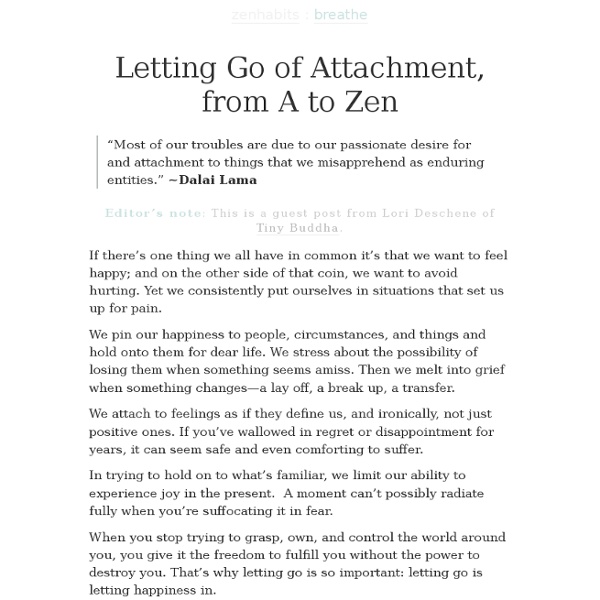5-Step Action Guide to Shine Your Light in 2010
5-Step Action Guide to Shine Your Light in 2010 Have you ever wondered why it seems so easy for some people to make major changes in their life while others sit back as passive observers wondering what happened? They begin to wonder where their life went wrong. They say things such as, “Why are bad things always happening to me?”
how to erase memory
(PhysOrg.com) -- Researchers working with mice have discovered that by removing a protein from the region of the brain responsible for recalling fear, they can permanently delete traumatic memories. Their report on a molecular means of erasing fear memories in rodents appears this week in Science Express. “When a traumatic event occurs, it creates a fearful memory that can last a lifetime and have a debilitating effect on a person’s life,” says Richard L. Huganir, Ph.D., professor and director of neuroscience at the Johns Hopkins University School of Medicine and a Howard Hughes Medical Institute investigator.
10 Ways to Play the Most Beautiful Open Chord Shapes
10 Ways to Play the Most Beautiful Open Chord Shapes Part I A great way to make your chord progressions and songs sound awesome is to use open chord shapes. I always love to use these chords to add some flavor to my chord progressions. One of my favorite chords is Fsus2.That chord has got the whole package for me. It’s sounds beautiful, gentle, tight, cool and rough at the same time.
How to Be Alone
I once knew a man who hated to be alone. It panicked him to the point where he sought to fill all of his waking hours with people. On the streets, at the bus stop, in restaurants, if he was unaccompanied he would soon find someone to talk to.
Life's Instructions » Concepts, Ideas, Thoughts & Bullsh!t
Thom Byxbe is Publisher and Editor of Concepts, Ideas, Thoughts & Bullsh!t He is based in Southwest Detroit, MI, and is a Knowledge Evangelist, Futurist, National Speaker, Author, Entrepreneur, Coach and Expert Blogger. Thom has been a respected author for over 15 years. He has written extensively on the Internet, Technology and Lifestyle topics. Concepts, Ideas, Thoughts & Bullsh!t is one of 4 current Blog projects he writes and manages.
Cosmopolitanism
Cosmopolitanism is the ideology that all human beings belong to a single community, based on a shared morality. A person who adheres to the idea of cosmopolitanism in any of its forms is called a cosmopolitan or cosmopolite. A cosmopolitan community might be based on an inclusive morality, a shared economic relationship, or a political structure that encompasses different nations. In a cosmopolitan community individuals from different places (e.g. nation-states) form relationships of mutual respect. As an example, Kwame Anthony Appiah suggests the possibility of a cosmopolitan community in which individuals from varying locations (physical, economic, etc.) enter relationships of mutual respect despite their differing beliefs (religious, political, etc.).[1]
Tips for Living an Extraordinary Life
by Henrik Edberg Is truth stranger than fiction? Perhaps. In this great article written by Henrik Edberg, we find that Mark Twain had expressed in his writings over the years an entire philosophy for living. If he were around today, it seems he would be on the lecture circuit with the likes of Eckhart Tolle or Wayne Dyer.
Most underrated songs by the most overrated artists.
Songs for when you’re stuck in the friend zone… Requested by Big Teddy Bear · Compiled by BFFE Man, do I know the feeling.
Six Steps to Meditation
This meditation lasts 15 to 20 minutes. It is a meditation of SIX steps. Each step will take roughly two and half to about three minutes.
The 100 Best Lifehacks of 2010: The Year in Review
Happy New Year everyone! It’s the first week of 2011 and many of us are getting ready to kick off the brand new year with a big bang. As we start off 2011 with our new resolutions and goals, let us now look back at the best posts at Lifehack in the past year. In this review post, I have gathered 100 of the best LifeHack articles in 2010.
Critical Thinking Worksite: Introduction
I. Just What is Critical Thinking? When you hear "critical thinking", it is natural to think of criticism---that is, of unpleasant episodes involving your parents or your boss.
The Pathology of Love
The Pathology of Love By: Dr. Sam Vaknin




The most amazing Article I've ever read and anyone else would. This is what we should be presribing depression. by mlharrington Sep 25